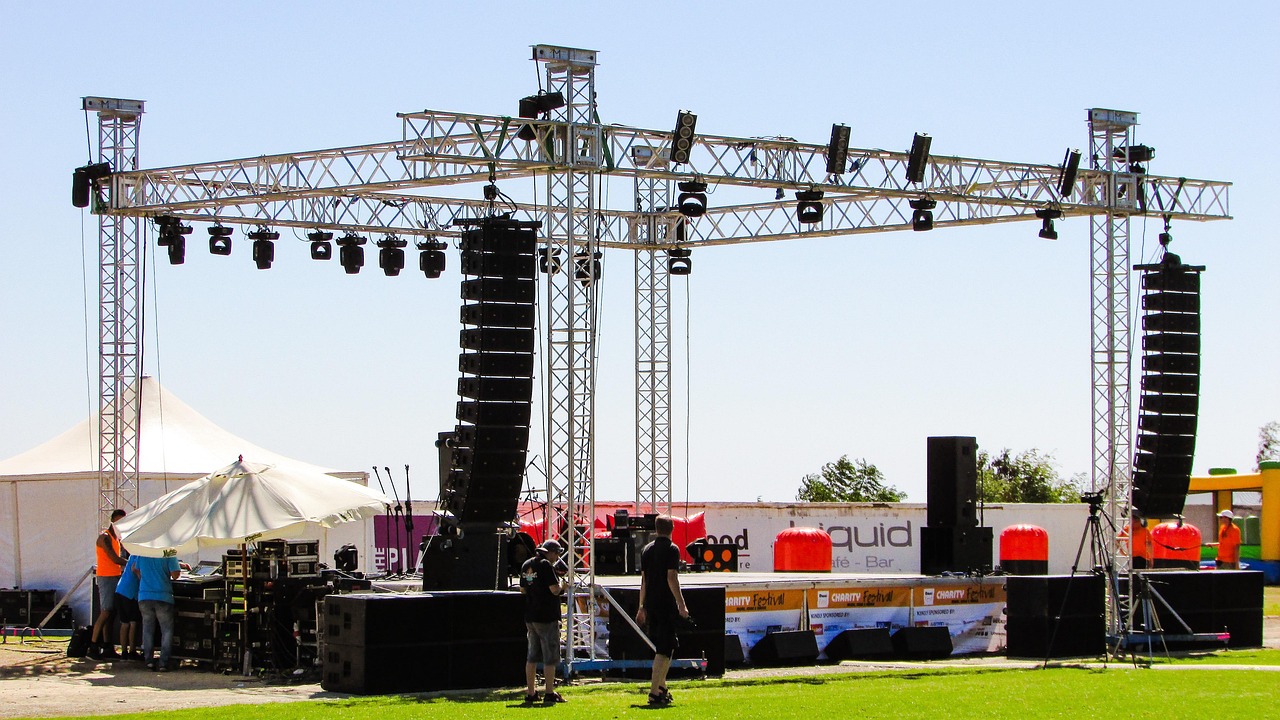Technology Advancements for Music Festival Acoustics.

Sound reproduction is an essential part of every music festival and with advancements in technology festival-goers are now getting a better experience. A large festival taking place in an open field has numerous acoustic challenges, and pure volume is not always the answer. What are organisers considering when assessing backline systems for their events.
The traditional music festival experience has been fraught with loud and distorted sound systems that adversely impact quality, noise pollution, and hearing impairment. New technology is enabling festivals to focus on improvements in precision, clarity and control, improving the audience's experience, and reducing noise pollution. The latest advancements in innovative technology are revolutionising how festivals deliver sound. What are these new tech advancements and how are organisers utilising them to improve event acoustics.
New Tech Acoustics.
The new tech acoustic systems are utilising advancements in computing power and AI capabilities. Advanced line array and directional control are the key features of the modern sound system where use of wavefront sculpture technology creates a perfect wave source. The software calculates how to drive each speaker cell to accurately direct sound energy to the audience zone only. Other technology that uses ultrasonic and parametric speakers allow highly targeted narrow beams of sound. Sound quality can be enhanced with the use of object-based audio (OBA) where sound is mixed into channels (vocals, drums, guitar) as a digital object with spatial data. The result is a truly 3D sound effect that envelops the audience. Bass audio has always been a contributory factor for distortion and noise pollution but advancements in active noise control using secondary subwoofer arrays behind the audience can cancel out unwanted noise distortion and limit leakage.
AI and Digital Control.
The fast-moving world of AI computing is enabling the creation of sophisticated algorithms to provide real-time audio optimisation. Recordings of an artist's multi track audio allow sound engineers to run ‘virtual soundchecks' using the festival's amplification and backline system without needing the artist to be present. AI can also be used by sound engineers in real time to automatically adjust EQ, compression and feedback suppression to optimise quality amplification to an audience. Some AI software systems are being developed to produce predictive acoustics based on environmental factors too. Metrological data like wind, temperature and humidity can be added into acoustics software models so that necessary changes to array angles and time delays are automated.
Impact on Costs.
Using new technology can be expensive, especially if this is an up-front capital expenditure with savings and benefits coming later. The benefits are an overall improved experience for festival-goers and a reduction in noise pollution. As most festivals obtain sound systems and backline equipment from contractors there will be no up-front investment, but rental fees will be higher for using the latest technology. In addition, there is an impact on staffing costs as the latest equipment will require more specialist engineers who will command higher fees.
Impact on Sustainability.
The new tech available for acoustic sound systems being used at music festivals should have an overall positive impact on an organiser’s sustainability credentials. New sounds systems utilising the latest tech are often smaller and use less power making them more energy efficient. Traditional analogue amplification and speaker arrays required substantial ‘juice’ from fuel powered generators. The new digital systems are more efficient and may even be able to be powered by more eco-friendly alternative power sources. The impact on local communities from the noise pollution associated with a large music festival can cause issues in the planning phase with objections blocking the obtaining of necessary permits. Eliminating noise leakage and keeping acoustics focused on the festival site can keep noise pollution to a minimum.
For festival organisers planning their next event using a software management platform like Festival Pro gives them all the functionality they need manage every aspect of their event logistics. The guys who are responsible for this software have been in the front line of event management for many years and the features are built from that experience and are performance artists themselves. The Festival Pro platform is easy to use and has comprehensive features with specific modules for managing artists, contractors, venues/stages, vendors, volunteers, sponsors, guestlists, ticketing, site planning, cashless payments and contactless ordering.
Image by dimitrisvetsikas1969 via Pixaby
<< Back to articles
Contact us
Get in touch to discuss your requirements.
US: +1 424 485 0220 (USA)
UK: +44 207 060 2666 (United Kingdom)
AU: +61 (2) 8357 0793 (Australia)
NZ: +64 (0)9887 8005 (New Zealand)